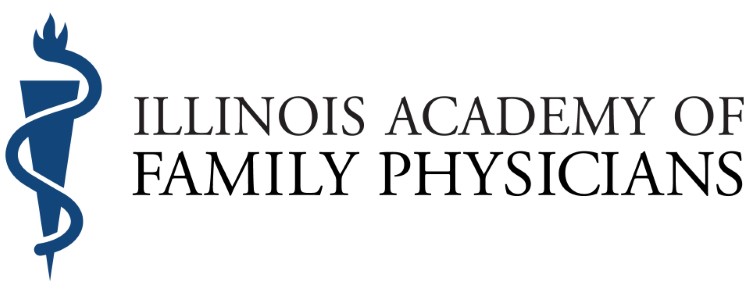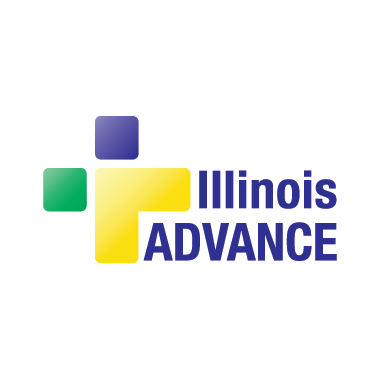“What’s Hot with Dr. Ott” you ask? Well as you can guess the answer is everything and everywhere! It was 103 here in Quincy on Friday when I decided on my topic for this IAFP President’s Member Message.
Wherever you are, chances are you’re feeling the heat, too. While we aren’t posting the highest temps in the nation, we are definitely living in serious and unsafe situations in recent days. Meanwhile some parts of the country have been gripped by excessive heat for weeks on end, with no end in sight. Even the waters off the coast of Florida are no relief, as the Gulf of Mexico water temperature tops 100 degrees, as in bath water or a hot tub! We may be tired of talking about and even more tired of living with it, but as family physicians we must continue to think about it and act in ways to keep our patients safe.
AAFP leaders have also been doing media interviews about taking the right precautions. IAFP member Javier Guevara, MD was featured on NBC5 Chicago about dangers specific to people living with diabetes during excessive heat and the impact on insulin and blood glucose levels.
|
AAFP’s amazing FamilyDoctor.org website has a great patient education section on heat related issues. I have particularly relied on this section from the website to share with my patients.
Can heat exhaustion and heatstroke be prevented or avoided?
There are many things you can do to prevent heat-related illnesses. Babies, children, and elderly people are more sensitive to heat and require extra attention. You also are at greater risk if you are ill or obese, or have heart disease. People who work outside or in a hot setting also are at risk of heat exhaustion and heatstroke.
Don’t go outside when the temperature and heat index are high. If possible, stay indoors in air-conditioned areas. If you must go outside, take the following precautions.
- Wear lightweight, light-colored, loose-fitting clothing.
- Protect yourself from the sun by wearing a hat or using an umbrella.
- Use sunscreen with a sun protection factor (SPF) of 15 or higher.
- Drink plenty of water throughout the day. Dehydration and lack of salt contribute to heat-related illnesses. Some sports drinks can help replenish the salt in your body lost through sweating.
- Drink water or other fluids every 15 to 20 minutes, even if you don’t feel thirsty. If your urine is clear, you are probably drinking enough fluids. Dark-colored urine is a sign that you’re dehydrated.
- Avoid or limit drinks that contain caffeine (such as tea, coffee, and soda) or alcohol.
- Schedule outdoor activities for cooler times of the day — before 10 a.m. and after 6 p.m.
- Take frequent breaks from the heat and outdoor activities.
- Do not stay or leave a child in your car when it is hot outside. Even if you open the windows, the intense heat can be extremely dangerous.
Certain medicines can put you in danger of heatstroke. They affect the way your body reacts to heat. Talk to your doctor if you take any of these or have an ongoing health problem. They can help you manage the heat with your condition. These medicines include:
- Antibiotics
- Allergy medicines (antihistamines)
- Some medicines used to manage blood pressure, cholesterol, and heart disease (beta-blockers and vasoconstrictors)
- Some medicines that treat mental health problems (antidepressants and antipsychotics)
- Seizure medicines (anticonvulsants)
- Water pills (diuretics)
- Laxatives
- Some diet pills
- Prescription acne medicines
- Illegal drugs, such as cocaine (amphetamines)
Fortunately, it’s back in the 80s this week. While I’m no meteorologist, I imagine that we’ll see at least a few more spikes in our high temperatures before Fall arrives. In the meantime, please keep our fellow family physicians in the Southwest and Southeast US and their communities in your thoughts. May we all have relief from the heat and soon!
|
FMX Early Registration Discount deadline is Sept. 15!
For more information and to register for FMX, visit www.aafp.org/fmx . It's an amazing chance to network with peers, share best practices, and learn from the most knowledgeable experts in our field. We hope you can join us for this extraordinary event. Let's come together to advance family medicine and celebrate the incredible power of our profession! We will have our own Illinois Celebration on October 27 at noon. Learn more and RSVP by September 27! See you in October in Chicago!
|
Your friend,
Timothy Ott, DO, FAAFP
President
|
Contact Info:
Illinois Academy of Family Physicians
747 E. Boughton Road, Suite 253 - Bolingbook, IL 60440
331-318-0680
[email protected]
|
|
|




